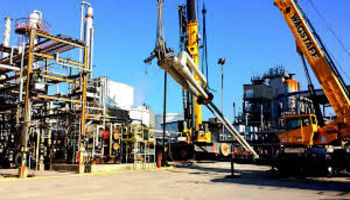In a modern world like ours right now, we use energy in just about every aspect of our lives. From our personal smart gadgets to home, kitchen and entertainment appliances, to major machines and devices used in school, offices, and major industries, energy is a major factor to make all these things work for our comfort and convenience. Our preferred energy source is actually non-renewable like fossil fuel, which means we may use it all sometime in the future. That is the major concern among conservationists and everybody else who has a deep concern for the environment as this type of energy is also not-so environment-friendly.
 However, they make things work for us now and that’s what matters to the majority of people. However, as one natural disaster after the other strikes our country, we start to realize how much dependent we are on the oil industry and while we also have our fears about the environment, it also has a big impact on the economy. For starters, these industries are big and employ hundreds to thousands of employees whose main livelihood is their job. Second, almost every other industry in the world relies on oil energy in making, delivering, and selling their products and services to consumers and the market at large. With a scarcity in supply because of damaged oil plants in Texas, it sure will make a big impact on our nation’s economy and we’ll find out soon enough what it means to the rest of America (and even to the world, perhaps).
However, they make things work for us now and that’s what matters to the majority of people. However, as one natural disaster after the other strikes our country, we start to realize how much dependent we are on the oil industry and while we also have our fears about the environment, it also has a big impact on the economy. For starters, these industries are big and employ hundreds to thousands of employees whose main livelihood is their job. Second, almost every other industry in the world relies on oil energy in making, delivering, and selling their products and services to consumers and the market at large. With a scarcity in supply because of damaged oil plants in Texas, it sure will make a big impact on our nation’s economy and we’ll find out soon enough what it means to the rest of America (and even to the world, perhaps).
Harvey shut down 22 percent of the nation’s refining capacity, vitally disrupted the oil and gas transportation networks that deliver energy to much of the US, and caused damage to facilities that leaked more than a million poundsof dangerous air pollutants into communities around Texas. The road back to full operational capacity will take weeks, if not months.
It’s no secret that oil and gas infrastructure along the Gulf Coast is increasingly at risk and that climate change could render it useless. The US Government Accountability Office, the Department of Energy, the Department of Natural Resources, countless environmental groups, and oil and gas industry representatives have all openly warned of the coming catastrophe.
(Via: https://www.wired.com/story/what-will-happen-to-the-gulf-coast-if-the-oil-industry-retreats/)
With a tragedy as powerful as Harvey, many Texas locals did not anticipate the extent of the damage in the hurricane’s wake and were pretty surprised at how much flooding they had to brace for leaving many residents in a hurry to evacuate. But aside from the damage incurred by residents and local businesses, what hurts the state the most (and the entire nation, actually) is that the hurricane shut down 22% of the US oil refining capacity. It is a big blow for a progressive nation like America that highly depends on energy to get things done.
Refinery closures often can take weeks of work to restart, and that process can’t even begin until flooded roadways are cleared and electricity has been restored on-site for plant operations. During this period of limited, or no production, other refineries in neighboring states often increase production to meet U.S. demand. At this time, there is no actual fuel shortage. However, there’s no denying any disruption in the supply and demand fuel chain often results in higher prices and temporary fuel interruptions for consumers at the pump.
All indications suggest Texas‘ oil and gas industry weathered Hurricane Harvey and the resulting widespread flooding like a champ. Every disaster is a learning experience and lessons learned from past storms such as Hurricanes Ike and Katrina are paying off.
Flooding is rare in Texas and this reality is partly the reason why so many were unable to evacuate on time or even make the necessary preparations before the hurricane hits. It’s the flooding that really hit the state hard as most oil refineries are located there and it has temporarily put operations on hold as recovery measures are still being initiated. If there is any good that will come out of this experience, it is the lessons learned from this tragedy that one can only learn through the first-hand experience.
